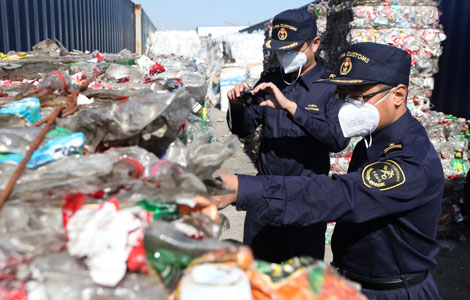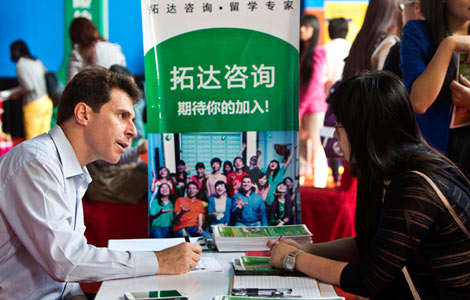From the Chinese press
Updated: 2013-10-18 08:12
(China Daily)
|
||||||||
Diplomatic gains in Southeast Asia
The successive visits of President Xi Jinping and Premier Li Keqiang to Southeast Asian countries reflect a new aspect of Chinese diplomacy, a diplomacy that is proficient in deriving long-term gains, says a commentary in People's Daily. Excerpts:
Over the past two weeks, China has played at least four good diplomatic cards in Southeast Asia: connectivity, bright economic prospects, maritime cooperation and closer relationship. After decades of fast-paced economic development, China has more resources and power, and exercises greater influence in the world. Despite that, it manages its relations with other countries, especially with neighbors, in a friendly way.
But international relations is not a simple competition for power and influence. Power alone cannot ensure the successful implementation of a country's strategy. To yield results, a strategy needs not only strong power, but also sophisticated tactics to use that power and, in many cases, the determination to go ahead with its usage. That the three "factors" are intertwined and indispensable is a proven fact.
Chinese leaders' visits to Southeast Asia not only demonstrate that Beijing now has abundant diplomatic resources, but also send a message to the whole world, especially Southeast Asian countries, that it knows how to skillfuly use its power and is determined to adhere to its established development strategy.
Through the top two leaders, China presented ASEAN collectively and its member states individually with a multi-level framework for cooperation in various fields, all of which need a strong realistic foundation such as capital, technology and markets.
Xi's commitment to sustainable growth reflects China's confidence in its own strength, which will help the cooperation framework to win the recognition and support of Southeast Asian countries.
Only tactics based on strength can produce results. Li's promotion of high-speed rail technology in Thailand and proposal of three cooperation frameworks with Vietnam are based on the strength that China has. But China does not have blind faith in its strength, nor does it pursue "dollar diplomacy". China believes in using its technological proficiency to reflect its power, and it adheres to the principle of deriving benefits for itself as well as its neighbors.
By applying the principles, China can avoid "spending money to ensure stability", and free Southeast Asian countries of their suspicions and help fullfil common interests. Of course, China is aware that its goodwill does not always win friendly feedback from other countries.
After the Huangyan Island incident, China has given up its past practice of using goodwill unilaterally to ease ties with the Philippines. Chinese leaders' cold attitude toward their Philippine counterparts, however, shows Beijing has no intention of changing its diplomatic strategy despite Manila's continuous provocations. China will adhere to its principles even if it provokes wrangles with some neighbors at times. In fact, it is precisely this adherence to principles that make China's neighbors perceive its goodwill more easily.
In Southeast Asia, the Chinese leaders played a combination of cards. In the Indonesian resort of Bali, people saw how prudently China outlined the overall situation in the South China Sea and advocated "shelving disputes and seeking common development" through regional cooperation in the Beibu Gulf. In Thailand, people witnessed Li's family-like treatment of China-Thailand friendship. In Vietnam, people appreciated China's goodwill to increase win-win results through finance and infrastructure cooperation.
The reason these initiatives can produce positive results is that China will use its strength smartly by adhering to the principles and make its neighbors fully aware of the bright future of win-win cooperation with China, as well as the price they might pay if they choose confrontation.
(China Daily 10/18/2013 page9)
Most Viewed
Editor's Picks

|

|

|

|

|

|
Today's Top News
US not budging on its arms restrictions on China
Can cranberries catch on in China?
Asia-Pacific pays executives world's highest salaries
US debt deal a temporary fix
China is No 1 oil importer
Millennials worried about finances
Elderly group sorry about roles in turmoil
Investigation to diagnose nation's TCM resources
US Weekly

|

|














